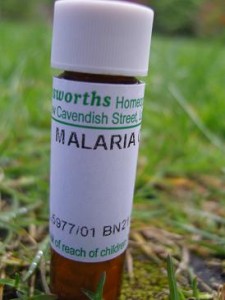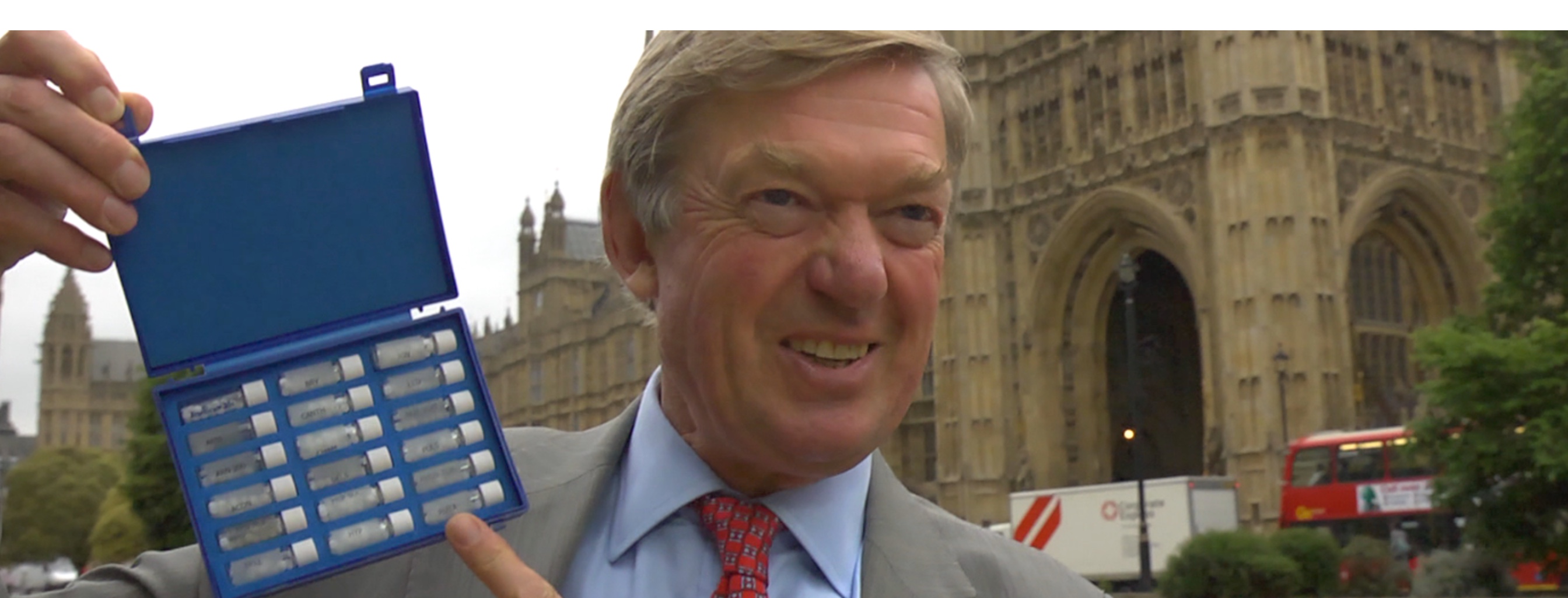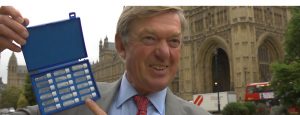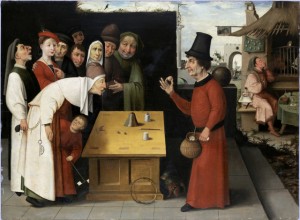The Homeopaths and the Advertising Standards Authority
 It is now the end of the Nightingale Collaboration’s first month of operation. This newly formed organization was set up to “challenge misleading claims in healthcare advertising”. In particular, TNC is focusing on the bizarre world of Pseudoscientific and Superstitious Medicine: an area that appears to get away with the most ludicrous health claims with little attention from any authority.
It is now the end of the Nightingale Collaboration’s first month of operation. This newly formed organization was set up to “challenge misleading claims in healthcare advertising”. In particular, TNC is focusing on the bizarre world of Pseudoscientific and Superstitious Medicine: an area that appears to get away with the most ludicrous health claims with little attention from any authority.
In its first month, the Nightingale Collaboration asked people to report homeopaths who are making unsubstantiated claims to the Advertising Standards Authority. It would appear that each month, the group wishes to focus on a particular problem with the sector. The homeopaths were first.
And it would appear that this campaign is likely to have far reaching consequences. Indeed, I will argue that it looks like this simple campaign could severely constrain the ability for quacks of all varieties to advertise their misleading claims on the web, without facing very serious consequences. However, we are likely to see huge battles in the short term.
So, what has happened?
The ASA received over a hundred and fifty complaints about over a hundred homeopath’s websites. This, no doubt, has caused a huge amount of work for the ASA in their first month where they now have taken responsibility for monitoring online advertisements.
I made a single complaint about a homeopath making a claim advertising a telephone number on twitter. I was rather hoping to be the first person to instigate a complaint against an advert on twitter. Sadly, I will have to wait. The ASA responded to me saying,
We are seeking to enforce compliance with the Code even-handedly across the sector by contacting all of the advertisers we have received complaints about as well as the bodies that represent homeopaths and homeopathy in the UK. We will be explaining the Code’s requirements, giving advice on how to ensure advertising claims do not breach the Code, and asking advertisers to remove any claims which do not comply.
The ASA will not be publishing individual adjudications on this occasion.
This is something of a shame as news of the new remit of the ASA has been around for many months and the homeopaths have had plenty of time to adjust. The ASA go on,
We will however publish specific, up-to-date advice to the industry and its representative bodies in due course and we will work with them to ensure that advertising for homeopathy is compliant with the Code.
The Society of Homeopaths, the largest membership body in the UK, published its own press release in response to this notice.
The Society of Homeopaths today welcomes the Advertising Standards Authority’s (ASA) announcement that it is to set up a project to look into the evidence base for the efficacy of homeopathic medicine. The Society, the UK’s largest regulator of homeopaths, is looking forward to working with the ASA and will be submitting the well established and growing body of research evidence that shows homeopathy to be a safe, clinically-effective and cost-effective option.
Meanwhile, the Society were busily telling their members something else,
We know that there are orchestrated campaigns, organised by sceptic groups like the Nightingale Collaboration, encouraging people to complain about homeopaths’ websites to the ASA, Trading Standards and to the various homeopathy registers. The Society is seeking legal advice to support us in discussions with the ASA to make sure that we can advise members accurately and also that the ASA responds reasonably and is consistent in how it implements the Code of Advertising Practice (CAP).
The Society tells its members,
For many homeopaths, this means removing named conditions, patient testimonials, the words ‘treat’ and ‘cure’” from your website and any other advertising materials.
This is something of a surprising statement, as the Society of Homeopaths is quite clear about its members’ obligations in its Code Of Ethics:
Professional advertising must be factual and not seek to mislead or deceive, or make unrealistic or extravagant claims. Advertising may indicate special interests but must not make claims of superiority or disparage professional colleagues or other professionals. No promise of cure, either implicit or explicit, should be made of any named disease.
The Society of Homeopaths is merely asking its members to comply with its own code of ethics.
However, this blog has been documenting how this code is a sham and never enforced. It would appear that it has taken the ASA to make the Society tell its members to comply with the code of ethics they have signed up to. Not surprisingly, the Society then go on to undermine themselves by saying that members can make claims if they reference research,
If you think you can make a good case for any research and are prepared to justify it to the ASA if a complaint is made, include it, and let us know the outcome. Although we know sceptics are challenging this, some members list books on homeopathy or include links to homeopathy books on websites such as Amazon.
Now, problems really began last week when the homeopathic one hundred started receiving notices from the ASA saying that they had received a complaint against them.
This letter was pretty hard hitting, but somewhat forgiving to the homeopaths. The ASA explain that,
We know that many web-based advertisers may not be aware of the ASA or its Code
and we are also aware that this letter may for some have come out of the blue.
This is simply untrue. Homeopaths most definitely should have been aware of the Advertising Code as the two largest membership organizations make explicit reference to it in their Code of Ethics that they ask homeopaths to sign up to.
The Society of Homeopaths require members to ensure that “All advertising must be published in a way that conforms to the law and to (the guidance issued in the British Code of Advertising Practice)”. The Alliance of Registered Homeopaths also say “All advertising must be published in a way that conforms to the law and to the guidance issued in the British Code of Advertising Practice.”
So, the public has a right to expect that when they visit a homeopath who is a registered member of one of these organizations that their advertisements would be in compliance with the CAP rules.
The ASA then tell the homeopaths,
The ASA has an established position on claims that can be made, and those claims that are not likely to be acceptable for homeopathy, based on the requirements set out in our Code and previous ASA adjudications. We accept that homeopathy might make some people feel better in some situations, however the Code requires all marketers to hold objective substantiation to prove any claims they make. Because the ASA has not seen reliable evidence to substantiate claims for the efficacy of homeopathy in relation to maintaining or improving health, you will need to remove any such claims from your website.
You must remove any content from your website that claims directly or indirectly that homeopathy and homeopathic products can diagnose/treat/help health conditions. This applies to claims made by both lay and medically trained homeopaths advertising their service and/or products. Please note that any reference to health professionals in the Code refers to those that are recognised within the Health Care Professions and therefore excludes homeopaths.
This was sure to be a massive shock to them. The ASA says it is giving three months for the necessary removals to take place and that they will revisit the sites, on the 1st of July, and take action against any non-compliant homeopath.
What is worse, the ASA appear to have changed their mind on conducting a review with the Homeopathic Organisations,
Those advertisers who are familiar with the ASA may want to know why, in this case, we are not inviting them to submit evidence to substantiate the claims complained about. This is because, to date, the ASA has not seen robust scientific evidence to support claims that imply homeopathy is proven for treating any specific health condition. We have seen the most recent, authoritative and comprehensive review of the scientific evidence by the House of Commons Science and Technology Committee entitled “Evidence Check 2: Homeopathy”. This provided an analysis of evidence and opinion submitted by a range of proponents and opponents of homeopathy, including some of the organisations representing homeopathy in the UK and practising homeopaths. The conclusion made clear that there was a lack of objective scientific evidence to substantiate the efficacy of homeopathy. Because the documents submitted for the “Evidence Check 2: Homeopathy” report provided a comprehensive collection of data for assessment, and homeopaths and the various bodies that represent them were invited to submit evidence as part of a consultation process, we do not intend to duplicate that process or assess the evidence again. We know that some studies suggest a positive effect from homeopathy; however, we understand that the evidence, when taken as a whole, does not support the conclusion that homeopathy in and of itself is proven to help or treat health conditions.
This will be a body blow to the homeopaths as the House of Commons report was not just damning about homeopathy, but damning about the way homeopaths treat evidence. The report stated:
We regret that advocates of homeopathy, including in their submissions to our inquiry, choose to rely on, and promulgate, selective approaches to the treatment of the evidence base as this risks confusing or misleading the public, the media and policy-makers.
The ASA would be entirely justified on not engaging with bodies such as the Society of Homeopaths or the Faculty of Homeopaths as they cannot be trusted to take a dispassionate view of the evidence base.
So, how have the Society of Homeopaths responded to this?
Not well. They have informed their members,
On the 11th March we were told that:
“the ASA has decided to look into claims for homeopathy as a whole. A focus of that project will be to consider evidence for the efficacy of homeopathy and we will be giving the industry an opportunity to submit for assessment any clinical evidence it holds.”
The ASA now appear to have retreated from that statement and have accepted the findings of the House of Commons Science and Technology Homeopathy Evidence Check Report. Neither of these decisions is acceptable, and we are currently seeking legal advice to discuss how best we can represent your interests to the ASA. The process may take time, and we will update you as regularly as we can.
Battle lines have been drawn. I also understand that the Faculty of Homeopathy – the body that represents doctors and vets who believe sugar pills can treat illnesses – are also looking to see what legal action can be taken to avoid a catastrophic collapse in their ability to make claims in advertising.
It looks like it is time to get the popcorn.
Why is this happening? Why, uniquely, do the homeopaths feel that they have to get legally heavy handed with the body that is charged with ensuring advertising in the UK is “legal, decent, honest and truthful”? The ASA can be trusted to regulate the adverts of the alcohol, tobacco, medicine, car and food industries, but not homeopathy. All these industries would benefit from being allowed to make unevidenced claims – but they do not because they see the benefit in the advertising industry as a whole being trusted by the public not to mislead. The ASA creates a level playing field that only advantages those that can substantiate claims and not those that can shout the loudest with anything they feel they can make up.
To understand how the homeopaths will respond we must look at how homeopathy started. Samuel Hahnemann founded homeopathy on the belief that he had discovered universal laws of health and disease. Treating illness was a process of finding substances that caused similar symptoms in healthy people and then using these substances as medicines –like-cures-like. He also discovered the ‘correct’ way to administer these poisons by serial dilution and shaking – to the point where none of the poison remained – just the water and alcohol which would be dripped onto sugar pills. All other forms of medicine were not just incorrect, but corrupt. He called mainstream physicians ‘allopaths’ and described what they did as ‘suppressing’ illnesses by pushing symptoms back into the body only later to re-emerge as worse illnesses – thus enriching the doctor, who could continue “suppressing symptoms” and selling more medicine. Indeed, allopathy was seen a leading cause of illness and it was the job of the homeopath to correct these terrible mistakes. Homeopaths’ attitudes to vaccines, mainstream cancer, malaria, HIV and TB treatments must be seen in this light.
Homeopathy is not an alternative or complementary medicine – but the only universal and complete system of medicine available. Criticisms of homeopathy were seen as attempts to suppress this True Medicine and hence preserve the wealth of doctors. For two hundred years, homeopaths have lived in a conspiratorial world where they have had to fight orthodoxy and wealthy medics to get their message out. They see the criticisms from scientists and doctors not as debates about evidence, but tactics to destroy the homeopathic threat to their income.
In the UK, lay homeopaths are particularly gripped by this fundamental view of homeopathy and see all through the conspiratorial lens of ‘allopathy vs homeopathy’.
Thus, we can be pretty sure that most homeopaths will be viewing the ASA as an agent of the pharmaceutical companies. No doubt they have worked out that it is not a statutory body with no real enforcement powers, and that it is funded by contributions from mainstream advertisers, such as drug companies. The conspiratorial mindset will be seeing the ASA as an attempt to curb ‘health freedom’ and the truth of homeopathy.
Homeopaths genuinely believe they have evidence that their treatments work. However, this belief is based on elevating the importance of testimonials, anecdote and historical usage. They are taught that objective forms of evidence, such as clinical trials, cannot be applied to ‘holistic’ techniques. As such, not being able to present their case and instead having to take the word of the House of Commons Select Committee (which contained known allopaths) will be completely unacceptable.
So, how will this pan out?
Outrage, and an overwhelming sense of injustice and entitlement, will ensure that most claims will remain on homeopaths’ web sites. Those that do wish to avoid confrontation with the ASA will not be able to assess what claims will be allowed, despite the ASA making this perfectly clear to them. Some may be foolish and think the ASA is of no significance. We can therefore expect a large amount of blatant non-compliance come July.
Assuming that the homeopaths legal threats amount to nothing, and given that the ASA has taken a position of the evidence, adjudications should come quickly thereafter. Homeopaths will be told that they have broken the CAP code and they must comply. This will also mean that they have explicitly broken their own Codes of Ethics that they have signed up to putting bodies like the Society of Homeopaths in extremely awkward positions. (My guess is that the Society will not recognise the ASA as a competent authority for interpreting the CAP code for homeopathy – a case of special pleading unique in the advertising world.)
It is then likely to get messy. Continual non-compliance will pressure the ASA to refer advertisers to the Office of Fair Trading who have powers to initiate criminal proceedings against homeopaths who may have broken Trading Standards legislation. How many have the balls, or stupidity, to face up to this remains to be seen.
Much will depend on the OFT’s appetite to prosecute – and this may be the one glimmer of hope for homeopaths. We are in this position because regulators and enforcement agencies, including Trading Standards and the MHRA, have turned a blind eye to this sector of commerce, allowing exemptions and exceptions to practices that would be crushed in any other industry. The ASA are entering waters that others have explicitly avoided wading in. If the credibility of the ASA is to remain, then they need to ensure the statutory authorities who can enforce compliance through criminal sanctions are prepared, on board, and ready to take quick action.








21 comments